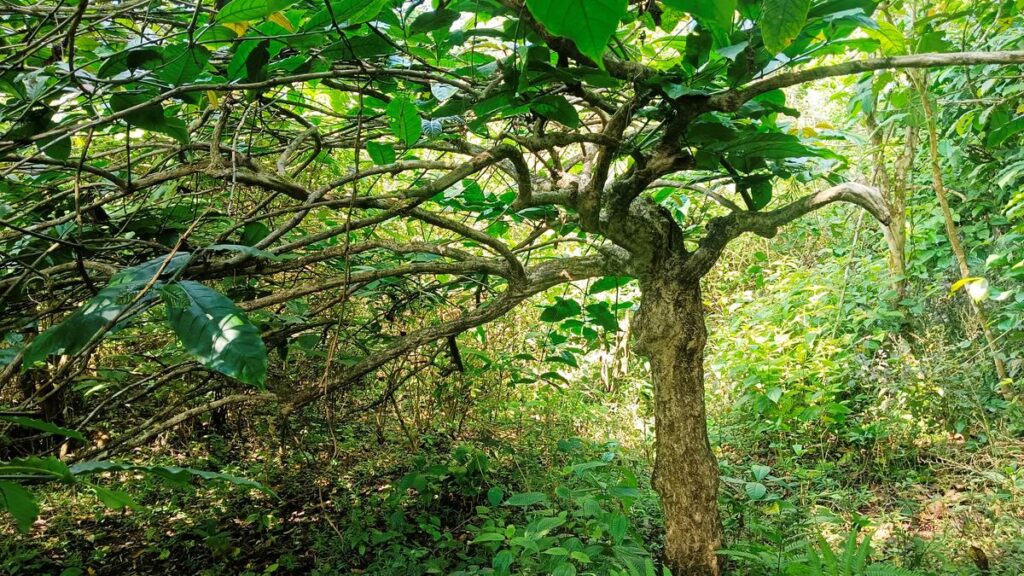The rare plant can be found in a coffee plantation on the church grounds of the British-built CSI in Pallikunnu near Kuttikkanam.

The 150-year-old coffee plant on the church grounds of Pallikkunnu CSI church in Idukki. | Photo Credit: JOMON PAMPAVALLEY
Those who visit the premises of the British-built Church of South India (CSI), in Pallikunnu near Kuttikkanam in the Idukki district, can see a coffee plantation on the church grounds. It is believed that the British planted coffee on the land owned by the church, which is over 150 years old, during the early period of the plantation industry in Peerumade.
The Church Missionary Society (CMS) constructed the cross-shaped church in 1869 on a 15-acre plot of land gifted by the then ruler of erstwhile Travancore. According to church authorities, the church plans to preserve the historically valued coffee plant in Pallikkunnu.
Pallikkunu St. George CSI Church Vicar Fr. Liju Abraham said that the plant is situated among a group of coffee plants on the church property. “Earlier, the church authorities contacted the Coffee Board officials to ensure the protection of the plant. Two years ago, the Coffee Board officials visited the church, inspected the plant, and assured support for its preservation. But the initiative came to a standstill after we failed to get a certificate from the church. The church aims to secure government support for the initiative,” said Fr. Abraham.
CSI East Kerala Diocese public relations officer Viju P. Chacko said, “The church needs to separate the 150-year-old plant from the group of coffee plants and create a special passage for visitors to view the rare plant. The plant could serve as a window for visitors into the plantation culture of Peerumade,” noted Mr. Chacko.
Kerala State Biodiversity Board (KSBB) district coordinator Ashwathi V.S. said that the KSBB can ensure the preservation of biodiversity-rich trees or plants through the Biodiversity Management Committee (BMC) in any area. “The concerned panchayat biodiversity management committee needs to submit a report to the Kerala State Biodiversity Board (KSBB) in this regard.” Additionally, Ms. Ashwathi recommended that the church authorities submit a letter expressing their willingness to preserve the plant.
Interestingly, during the initial period of the plantation industry in Idukki, coffee plants were the crop of choice. The book Above Heron’s Pool by Heather Lovatt and Peter de Jong, describing the plantation history in Peerumade and Vandiperiyar, sheds light on the change. “In 1875, a leaf disease caused significant damage to the coffee plants, prompting the planters to switch to growing tea instead. The book further states that Thengakal, near Peerumade, once achieved the highest coffee yield in southern India, producing two tonnes of cured coffee per acre,” said the book.
source: http://www.thehindu.com / The Hindu / Home> News> India> Kerala / by Sandeep Vellaram / December 29th, 2024

